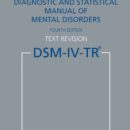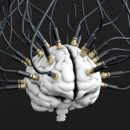OCD and DSM-V: Taking the “anxiety” out of OCD
Psychiatrists and psychologists continue to debate the fundamental nature of OCD, trying to decide whether or not OCD should continue to be classified as an “anxiety disorder.” In some ways, OCD overlaps with other anxiety-related conditions, such as panic disorder, phobias, social anxiety disorder, generalized anxiety disorder, and post-traumatic stress disorder (PTSD). In other ways, OCD is unique unto itself. Although the current version of the Diagnostic and Statistical Manual (the book that psychologists and psychiatrists use when making diagnoses) classifies OCD as an anxiety disorder, the next revision is likely to give OCD its own category of related conditions (see here). Regardless of your position on the conceptual issues involved in this change, there are many pragmatic benefits that arise from treating OCD-related conditions as distinct from the anxiety disorders. For example, it is likely that this change will ultimately...
Read MoreOCD & ECT (electro-convulsive therapy): Not a first-line treatment
If your only diagnosis is OCD and you don’t have any other complicating factors, be cautious when considering electro-convulsive therapy (ECT) for treating your OCD. ECT can be a very helpful intervention for many types of conditions (e.g., severe depression, bipolar disorder, schizophrenia), but it is not considered to be a first-line treatment for OCD. Unfortunately, I have encountered several individuals recently who have undergone ECT without first receiving a good trial of exposure and response prevention (ERP). Research indicates that medication and intensive ERP should be attempted prior to undergoing ECT, unless there is a good reason why these interventions are counter-indicated. If you have OCD and you are considering ECT, consult with a psychiatrist who specializes in treating OCD. He or she can advise you about your best course of action. Questions? Comments? Sound off...
Read MoreOCD guilt, shame, disgust, anxiety & depression: Why treatment sometimes fails (and what to do about it)
OCD isn’t just about anxiety. Although anxiety is certainly a prominent feature of the disorder, clinicians who only attend to anxious symptoms can easily overlook some of its other core features. As a psychologist in Palm Beach, Florida, I work closely with kids, teens, and adults throughout the greater Palm Beach, Fort Lauderdale, and Miami areas on strategies for recovering from OCD. In the patients I treat, anxiety is often accompanied by significant guilt, shame, disgust, and depression. These features are not necessarily related to, or caused by, anxiety; they can be distinct processes. If you (or your psychologist) conceptualize exposure and response prevention (ERP) as only a means to habituate to anxiety but fail to consider how treatment must also address these other features, you are likely to have a suboptimal treatment response and will continue to experience significant...
Read MoreOCD, ERP, & doubt sensitivity: Shattering the illusion of certainty
Many individuals with OCD hunger for certainty. It’s a craving that often can’t be easily sated. Early conceptions of OCD from the 19th century acknowledged this issue directly, in that OCD was often termed the “doubting disease.” It is this need for certainty, the need to eliminate doubt, that leads many people with OCD to perform repetitive behaviors, which are known as rituals. For example, it is doubt about whether one’s hands are sufficiently clean that leads one to engage in repetitive hand-washing rituals. Likewise, uncertainty about whether a stove has been turned off (and worry about potentially dire consequences) can underlie checking rituals. Many different types of rituals involve reassurance-seeking behaviors. For people with OCD who have intrusive bad thoughts (e.g., What if I secretly want to hurt a family member? What if I don’t believe in God...
Read MoreMiami/Fort Lauderdale OCD support groups for adults and kids
Several support groups for individuals with OCD are conveniently located near Miami, Fort Lauderdale, and Boca Raton. Some groups are facilitated by licensed clinical psychologists, whereas others are led by individuals with OCD. To view current support groups in South Florida (Dade, Broward, and Palm Beach counties), visit the IOCDF’s support group page here. Each support group listing provides information about the group’s focus, target age group, location, and leader. Listings also contain contact information for the sponsor of the group in case you want to obtain additional information prior to attending. Please note: different support groups target different age groups and different OC-spectrum diagnoses (e.g., OCD, trichotillomania, hoarding). Some groups are for adults only (18+), whereas others are for children and teens with OCD. Most groups are free to the public and offer opportunities for individuals to tell...
Read More







